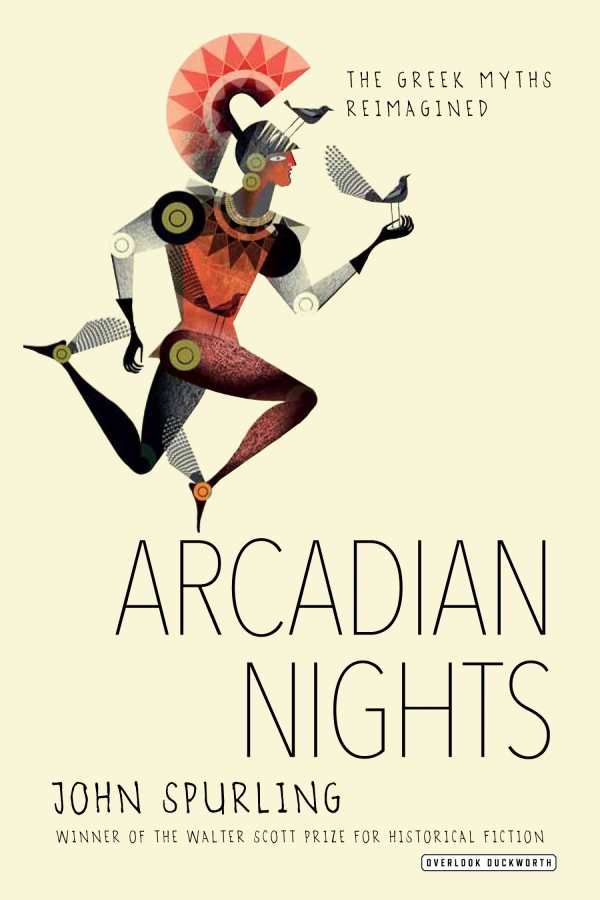Arcadian Nights
The Greek Myths Reimagined
These retellings of Greek myths add valuable touches and character development to familiar tales.
Ancient Greek myths endure largely because they’re good stories. In Arcadian Nights, John Spurling expertly retells those stories, keeping the plots and characters intact and adding detail and historical context that makes them read as fresh works of fiction.
Spurling organizes these stories by five major characters—Agamemnon, Apollo, Herakles, Perseus, and Theseus—but uses those categories to include other characters from their family trees or those who shared in their exploits, which proves a handy way to put these well-known stories into a coherent time line. For example, Agamemnon’s section includes how a curse came to be placed on his grandfather Pelops, and continues through the revenge Agamemnon’s son Orestes takes for his father’s murder after the Trojan War. This is a really effective approach, letting Spurling explore themes across myths without ever becoming heavy-handed or letting the analysis overtake the storytelling.
Many of the greatest hits of Greek mythology are included here. Herakles’s section covers his legendary twelve labors, and also the demigod’s troubled history with romance and marriage. Spurling tells the tales of Perseus in his quest to kill the gorgon Medusa, and of Theseus entering the labyrinth to destroy the minotaur. But in each case, Spurling adds valuable touches to these familiar stories. Throughout the book, Spurling uses modern dialogue to better develop characters. For example, when Theseus goes to Crete as one of the tributes to feed the minotaur, Spurling writes compellingly about the feasts and games beforehand, of long talks between the hero and King Minos, and of the boat journey there and back.
He also provides some interesting background. When multiple versions of a story exist, Spurling discusses each and why they might differ. He isn’t afraid to provide commentary on the lessons the myths teach, and where their morals feel out of date. He also offers background on where mythological events took place, using geography and topography to give them a real sense of scale. More impressively, all of this is achieved without breaking from his comfortable storytelling style. Arcadian Nights is a rare book that brings new life to well-covered material, and is essential reading for mythology fans.
Reviewed by
Jeff Fleischer
Disclosure: This article is not an endorsement, but a review. The publisher of this book provided free copies of the book to have their book reviewed by a professional reviewer. No fee was paid by the publisher for this review. Foreword Reviews only recommends books that we love. Foreword Magazine, Inc. is disclosing this in accordance with the Federal Trade Commission’s 16 CFR, Part 255.

